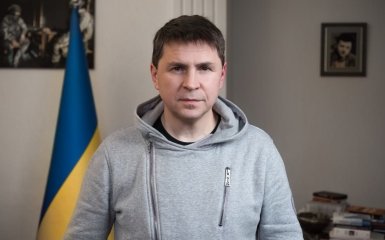The Office of the President of Ukraine (OP) reacted to the discussion by the West about sending its troops to Ukraine. Mykhailo Podolyak, adviser to the OP's head, notes that this indicates an awareness of the risks of Russian aggression.
The President's office reacted positively to the words of Western politicians
This testifies, firstly, to the absolute awareness of the risks that a militaristic, aggressive Russia poses for Europe.

Mykhailo Podolyak
Adviser to the OP head
According to the adviser, the opening of the discussion about the possibility of direct support of Ukraine by the armed forces should be considered as a desire to place the right emphasis to highlight the risks more clearly.
He also noted that at this stage, it is important to accelerate the delivery of military equipment to Ukraine.
An unnamed White House representative told Reuters that the United States does not plan to send its troops or allied forces to fight in Ukraine.
What does the EU say about the possible sending of Western troops to Ukraine?
Recently, Slovak PM Robert Fico officially confirmed that individual members of the European Union are currently discussing whether to conclude bilateral agreements on the introduction of troops into Ukraine to help it repel the Russian invasion.
After a meeting in Paris, French leader Emmanuel Macron allowed the sending of Western troops to Ukraine in the future, although he stressed that there is currently no consensus among allies on this issue.
Following Macron's statement, Germany, the Czech Republic, Poland and Sweden said they were not considering sending their troops to Ukraine.
According to NATO Secretary General Jens Stoltenberg, as of today, the Alliance does not plan to send troops to Ukraine amid reports that some Western countries may consider such a possibility individually.
NATO as an alliance provides only non-lethal aid and support to Ukraine, such as medicines, uniforms and winter equipment. But the members of the Alliance send weapons and ammunition on a bilateral basis or in groups, - added Stoltenberg.




